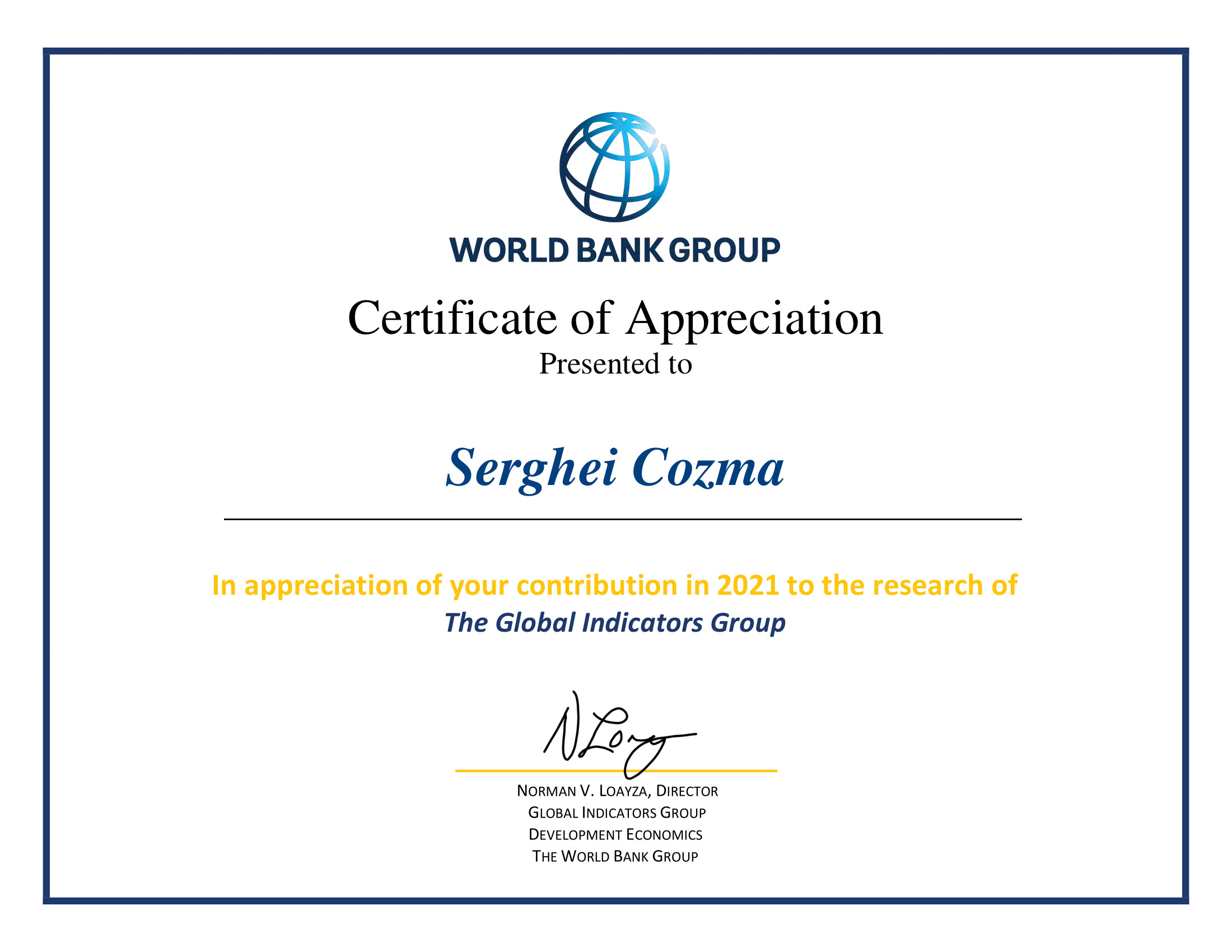 Currently in Republic of Moldova are existing only press releases of the National Bank of Moldova, which recommended that citizens of the country have to refrain from using cryptocurrencies and not accept cryptocurrencies as payment for goods, services and work performed. Citizens who invest their funds in cryptocurrencies must fully and clearly recognize and evaluate the risks involved and possible financial losses and losses on the funds invested in cryptocurrencies. The legal status and nature of cryptocurrency in Moldova is not defined. But at the same time, according to the Law “on the National Bank of Moldova”, “Banks and Banking Activity”, Moldavian leu (MDL) is the only legal tender in the entire territory of the Republic of Moldova that is obligatory to receive without restrictions on all types of payments. And thus, the use of cryptocurrency as a means of payment on the territory of Moldova will be a violation of the legislation of the Republic of Moldova. Currently, the National Bank of Moldova closely monitors the emerging situation with cryptocurrencies, including international practice and the experience of other countries, the risks and threats arising from their use. As the situation evolves, if necessary, variants of cryptocurrency regulation in Moldova will be considered. At the same time, in Moldova, the prospects for the practical use of blockchain technology, its features and applicability in various fields are studied. Currently in Republic of Moldova are existing only press releases of the National Bank of Moldova, which recommended that citizens of the country have to refrain from using cryptocurrencies and not accept cryptocurrencies as payment for goods, services and work performed. Citizens who invest their funds in cryptocurrencies must fully and clearly recognize and evaluate the risks involved and possible financial losses and losses on the funds invested in cryptocurrencies. The legal status and nature of cryptocurrency in Moldova is not defined. But at the same time, according to the Law “on the National Bank of Moldova”, “Banks and Banking Activity”, Moldavian leu (MDL) is the only legal tender in the entire territory of the Republic of Moldova that is obligatory to receive without restrictions on all types of payments. And thus, the use of cryptocurrency as a means of payment on the territory of Moldova will be a violation of the legislation of the Republic of Moldova. Currently, the National Bank of Moldova closely monitors the emerging situation with cryptocurrencies, including international practice and the experience of other countries, the risks and threats arising from their use. As the situation evolves, if necessary, variants of cryptocurrency regulation in Moldova will be considered. At the same time, in Moldova, the prospects for the practical use of blockchain technology, its features and applicability in various fields are studied.
This means that enterprises and individuals may have cryptocurrency wallets, but for payment in cryptocurrency for goods and services in Moldova are not accepted directly, and its use occurs in the territory of the country only as a result of the exchange for Moldavian leu (MDL).
But here it is necessary to take into account, that Moldova, which is an associate member of the European Union, is legislatively practically all guided by the normative acts of the European Union. Moreover, according to the association agreement, it undertakes to bring the national legislation in line with the standards adopted by the European Union, and therefore, it must be assumed that at this stage no regulator (body) of the European Union has adopted any special rules regulation of cryptocurrency activities.
Moldova is no exception. There are no regulations in relation to cryptocurrency in country, therefore we can say that there are no prohibitions regarding the use of cryptocurrency as an exchange tool.
Due to the fact that Moldova in this matter will unambiguously follow the requirements of the European Union, in order to understand the prospects for cryptocurrency in Moldova, it is necessary to take into account the situation on this topic in Europe. So according to the latest data in the European Union, the following cryptocurrency situation has developed.
Taxation of cryptocurrency and operations with it is carried out in accordance with the national legislation of the Member States of the European Union, depending on the nature of the cryptocurrency operation. In this case, as a rule, for the purposes of taxation, digital currency is considered as an intangible asset or commodity, and not as currency or money. An exception is the value-added tax, since in November 2015 the European Court of Justice (European Court of Justice) ruled that Bitcoin buying and selling operations for traditional fiat currencies were not levied.
In 2016, the European Commission proposed to establish additional regulation for cryptocurrency exchanges and companies that provide cryptocurrency wallets to users. In particular, it is proposed to ensure the mandatory registration or licensing of cryptocurrency exchanges that exchange cryptocurrencies for fiat money and vice versa, and companies that provide cryptocurrency wallets to users. In addition, it is planned to create a central database with information about digital currency users. Instead of the term "cryptocurrency" European regulators use the term "virtual currency".
However, it is considered including as a means of payment. Nevertheless, this approach was criticized by the ECB, which considers the definition of cryptocurrency as a virtual currency imperfect;
In addition, according its conclusion, digital currency is a means of exchange, not payment, and is neither money nor currency.
Legal regulation of cryptocurrency and operations with it takes place in the framework of the implementation policies to counter the legalization (laundering) of proceeds from crime, the financing of terrorism.
In accordance with the latest statements by representatives of EU bodies and national authorities, cryptocurrencies should not be subject to formal regulation.
In October 2012, the ECB prepared a report on digital currency schemes, which considered Bitcoin system and briefly analyzed the legal status of such a system within the European legislation. Discussion questions raised including the possibility of including digital money in the definition of electronic money in the framework of the Directive on electronic money 2009/110 / EC2 and accordingly, their subsequent regulation within this.
Directive:
- The Directive defines electronic money as an entity that is stored on electronic device;
- Emitted after receipt of funds in an amount not less than the amount of the emitted cash value;
- It is accepted as a means of payment not only by the issuer, but also by other firms.
The report notes that the definition of Bitcoin meets the first and third criteria for determining electronic money, but not the second, most significant, criterion of the security of issued funds.
Other experts point out that Bitcoin falls under the definitions contained in the Payment Services Directive 2007/64 / EC3. However, the report concludes on the non-proliferation of the provisions of the Payment Services Directive 2007/64 / EC on activities related to cryptocurrency.
In December 2013, the European Banking Supervision Authority (EBA) issued a press release, which contained an official warning to consumers about the risks associated with the purchase, possession and operations with virtual currencies. The EBA has identified the following risks:
- the absence in the European Union of special regulation that could protect consumers from financial losses associated with the collapse of companies owning relevant technologies that enable the exchange of digital currencies (the collapse of digital currency exchanges), or with their decision to leave this business;
- in the case of making payments in digital currencies, the consumer will not have rights to return funds within the framework of European legislation (for example, in case of refusal from such operations, the funds will not be returned, as in the case of operations with payment cards);
- if law enforcement agencies find out that virtual currency exchange is used for illegal purposes (for example, in laundering of proceeds from crime), this can lead to their closure in a short time, and consumers will not be able to access or return their digital money;
- in the case of fraud in relation to digital wallets that store virtual currency placed on personal computers, laptops and mobile smart phones, their owners do not fall under the appropriate protection of European legislation.
In a press release, it was noted that consumers were losing significant amounts and the prospects for their return were insignificant. The press release also noted the tax risks associated with owning virtual currencies.
Already later, in October 2015, the European Court of Justice issued a preliminary decree on Bitcoin taxation, which was supported by the Swedish Revenue Law Commission, which in practice meant: transactions related to the purchase and the sale of bitcoin in the countries - members of the European Union should not be subject to VAT.
In November 2015, the European Court of Justice issued a decision according to which Bitcoin should be considered as a currency (means of payment), and not a commodity, at least in the terms of taxation. Thus, the purchase and sale of bitcoins for traditional fiat currencies should not be subject to value added tax. Prior to this, national regulators treated the taxation of cryptocurrency differently.
In January 2016, the European Parliament held public hearings on digital currencies. One of the participants in the hearings, a representative of the budget committee of the European Parliament, commenting on the position of the regulator, said that the European Parliament is inclined to think that around digital currencies need to continue to watch. He also noted that in regulation financial products related to digital currencies, "there is no particular hurry." At the end of February, the draft report of the European Parliament’s Committee on Economic and Monetary Affairs (European Parliament’s Committee, hereinafter referred to as the “Committee”) on an approach to the regulation of cryptocurrencies was published, according to which one should refrain from direct regulation of bitcoins and other digital currencies. The report of the Committee also considers the possibility of bringing the regulation of bitcoins to the existing rules on countering the legalization (laundering) of criminal proceeds and the financing of terrorism. In addition, the authors propose to create a special working group to address issues related to cryptocurrency. In May, the proposal to create such a group was approved by the European Parliament.
In February 2016, the opinion of the European Council was published, which emphasizes the importance of promptly amending the European Union legislation in the area of countering the legalization (laundering) of criminal proceeds and the financing of terrorism, while taking into account cryptocurrency.
In July 2016, the European Commission proposed the adoption of a directive that would require cryptocurrency Stock exchanges and cryptocurrency purse providers comply with the requirements of the Directive on preventing the use of the financial system for the purpose of laundering criminal proceeds and the financing of terrorism (2015/849 / EC). Thus, it is proposed to introduce mandatory registration or licensing of cryptocurrency exchanges that exchange cryptocurrencies for fiat money and vice versa, as well as providers of cryptocurrency wallets. The draft directive also provides for the creation of a central database with information about digital currency users. Relevant proposals have been submitted for review by European Parliament.
At the same time, only those service providers will fall under the action of the proposed directive cryptocurrency wallets that store at least one user's personal key on your server (s).
In August 2016, the opinion of the European Banking Supervision Service was published regarding the proposed directive. In accordance with its provisions on the collection of personal data should be more stringent and European regulators should be kept opportunity to impose sanctions on cryptocurrency exchanges and cryptocurrency provider’s wallets that do not follow the rules.
In September 2016, Europol announced the creation of a working group with the International organization of the criminal police (Interpol) and the Basel Management Institute, which will deal with the fight against legalization (laundering) with the help of cryptocurrency of proceeds from crime.
In October 2016, the ECB’s opinion on the proposal of the European Commission was published that each regulator has to take in consideration the following key moments:
- supported the introduction of compulsory registration or licensing activities cryptocurrency exchanges that exchange fiat money and vice versa, and providers of cryptocurrency wallets;
- pointed out the imperfection of the definition of cryptocurrency as a virtual currency and means of payment (in his opinion, cryptocurrency is more likely a medium of exchange);
- it noted that digital currency is neither money nor currency;
- said that widespread adoption of digital currencies could have a negative effect on the ability of central banks to control the money supply in circulation.
In 2016, the European Commission proposed a directive that provides for the introduction of mandatory registration or licensing of cryptocurrency exchanges, exchanging cryptocurrencies for fiat money and vice versa, and provider’s cryptocurrency wallets. As well as creating a central database with information about digital currency users.
In 2017, the European Union amended the Fourth Anti-Money Laundering Directive, adopted in 2015, adding Bitcoin and its associated business to the list, involving a two-year process of registering companies for easier regulation by the EU authorities:
- requires from platforms that provide bitcoin transfer and providers of “wallets”, holding cryptocurrencies, identify their customers;
- limits the use of prepaid cards;
- increases transparency requirements;
- opens up greater access for national investigative services to information, including data on registration in national banks;
- provides beneficiaries with access to information about “persons having the opportunity demonstrate a legitimate interest”.
During the discussions of the project, the United Kingdom expressed its opposition as other countries - Malta, Cyprus, Ireland, Luxembourg.
The bill must be ratified by the EU member countries, after which it development is already on a regional scale. The events are scheduled for early 2019.
In September 2017, the president of the European Central Bank, Mario Draghi, said that none of the EU member countries had the right to enter their own currency. Draghi made this statement in response to Estonia’s plans to introduce the state cryptocurrency estcoin. | 






